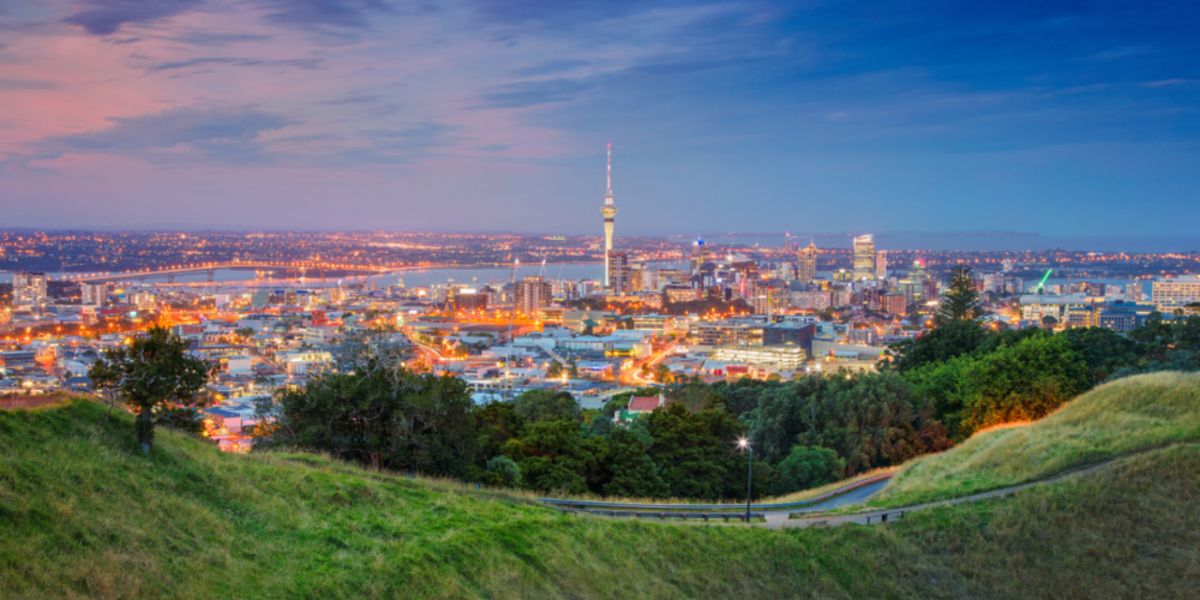
The first few days in a new city can be daunting, but with a little planning and knowledge, you will find that it's easy to settle in and make Auckland feel like home in no time at all.
Touching down
When you first arrive at Auckland's award-winning airport, you will be greeted by a large tomokanga, a carved Māori entryway. New Zealanders respect and value Māori culture, and you will find its stamp all across Aotearoa. While Te Reo Māori (Māori language) place names, like Whangaparoa, can look daunting to pronounce, it's actually pretty easy once you know the basics.
Once you've passed under the tomokanga and gotten through baggage claim and customs (remember to read the strict laws on what you can bring in), you will be in South Auckland and will need to find a way to your destination.
The SkyBus runs frequently to and from the CBD, and there are plenty of taxi and ridesharing app options. Check out the transport section for more information on getting around Auckland.
Auckland's climate is mild, if a little unpredictable. Winter days average about 10°C and summers around 22°C, though you might have a surprisingly cold or hot day now and again. For the most part, winter is rainy and grey, while summer is the time to hit the beach. Auckland is known for its sudden showers, which can clear off as quickly as they arrive, leaving blue skies in their wake.
Settling in Auckland
Getting your new home in Auckland set up won't be too hard. There are plenty of supermarkets which are mostly open from 8 am to 10 pm. Plus, Auckland is speckled with stores that offer imported specialties from all over the world.
For furnishings and furniture, department stores can be found in malls. There are also plenty of designer stores around, or you can order whatever you need online. Second-hand shops are common in New Zealand, and there is no stigma around purchasing used goods. These shops often have high-quality furnishings, kitchenware and furniture, so if you don't want to buy everything new, then this can be a great affordable option. For online shopping of pre-owned goods, TradeMe and Facebook marketplace are great options.
There is no shortage of options for eating out in Auckland, whether you're after fast-food, takeout/dine-in restaurants, or a fine-dining experience. Google Maps will give you a great overview of what's near you. Uber Eats and other app-based ordering services are becoming increasingly popular and can allow you to have all kinds of cuisine brought direct to the door.
Social life in Auckland
Life can come with big-city challenges, like meeting new people, but it also comes with big-city possibilities. Auckland is often presented as a center of commerce and business, but that's only part of what makes it great.
For the artists, there is a bustling arts scene, and tabletop gaming clubs for the games enthusiasts. Hobbyist venues of all kinds are all over the city, providing a place for anyone to make friends and practice what they enjoy. The universities in Auckland are not just for those who want to get a full degree - many offer evening classes in cooking, languages, or dozens of other skills.
Safety in Auckland
New Zealand has an international reputation for how friendly the inhabitants are, and Auckland is no different. However, as with every city, crime does exist, so it's important to keep safety in mind both for your home and yourself, especially if you are walking around late at night. The police are easily reached on the number 111, which you can also register to text if you are hearing or speech impaired.
The cost of living in Auckland
Life in Auckland isn't cheap compared to average income levels, so it's a good idea to think about budgeting, which will start with accommodation whether you're renting or buying. Living with others can help keep costs down, particularly for bills. Unlimited internet will cost you between $80-100/month for decent speed. You will pay for power and water, and council rates for homeowners. While public schools are free to attend, there are certain expenses to expect, including field trips, uniforms and equipment.
Education in Auckland
Public schooling in Auckland has a good reputation. Students are automatically accepted to any school they are in zone for but can apply for those outside that area. Each school is given a decile number from 1 to 10 to describe the socio-economic level of the student population – 1 being the lowest 10% and 10 the highest. This does not always reflect how good the teachers or facilities are as government funding is allocated to schools that need it more, and many great teachers choose to work in lower decile schools – it is about finding the right school for the right student. There are also plenty of private schools to choose from if that is preferred.
Auckland is a great place to call home, and once you find your niche, you will find that the city will only be as big or small as you make it.
We do our best to provide accurate and up to date information. However, if you have noticed any inaccuracies in this article, please let us know in the comments section below.








